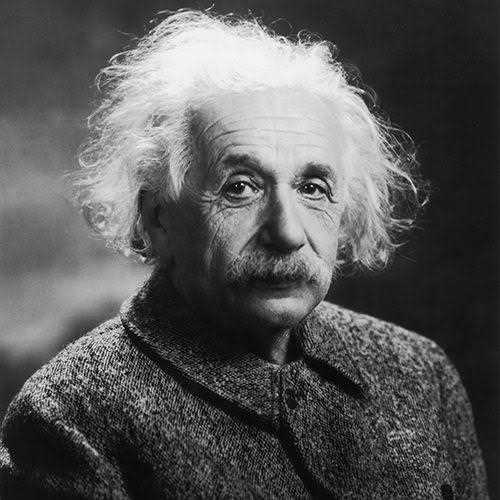The famous scientist who developed the theory of relativity is Albert Einstein. Born on March 14, 1879, in Ulm, Germany, Einstein revolutionized the field of physics with his groundbreaking discoveries and theories, most notably the theory of relativity.

Einstein's theory of relativity encompasses two major works: the special theory of relativity, published in 1905, and the general theory of relativity, published in 1915. These theories introduced revolutionary concepts that fundamentally changed our understanding of space, time, and gravity.
The special theory of relativity, formulated by Einstein in his paper titled "On the Electrodynamics of Moving Bodies," challenged long-held assumptions about the nature of space and time. It proposed that the laws of physics are the same in all inertial frames of reference and that the speed of light is constant in a vacuum, regardless of the motion of the source or the observer. This theory overturned Newtonian mechanics and introduced the concept of time dilation and length contraction, highlighting the interplay between space, time, and the speed of light.
Einstein's general theory of relativity expanded upon the foundations of the special theory and provided a new understanding of gravity. In this theory, Einstein proposed that gravity is not a force exerted by massive objects but rather a curvature of spacetime caused by the presence of mass and energy. He postulated that objects with mass or energy curve the fabric of spacetime, and other objects move along the paths dictated by this curvature. This theory provided a more comprehensive explanation of gravity, predicting phenomena such as the bending of light around massive objects and the existence of black holes.
The theories of relativity put forth by Einstein revolutionized our understanding of the universe, challenging the established Newtonian framework and providing a new framework for comprehending the behavior of matter, energy, space, and time. They have been extensively tested and validated through numerous experiments and observations, earning them a place as some of the most influential theories in the history of science.
Einstein's contributions to the theory of relativity propelled him to international fame and earned him the Nobel Prize in Physics in 1921 for his explanation of the photoelectric effect, which laid the foundation for quantum mechanics. However, it is his work on relativity that has had the most profound and lasting impact on the field of physics and our understanding of the universe.
Beyond his scientific achievements, Einstein's name has become synonymous with intelligence and creativity. He was not only a brilliant physicist but also a passionate advocate for peace, civil rights, and social justice. His scientific legacy and his contributions to humanity continue to inspire scientists, thinkers, and individuals around the world.
In conclusion, Albert Einstein, the renowned scientist, developed the theory of relativity, which encompasses both the special theory of relativity and the general theory of relativity. Through these theories, Einstein revolutionized our understanding of space, time, and gravity, challenging established notions and providing new frameworks for comprehending the fundamental workings of the universe. His contributions have left an indelible mark on the field of physics and continue to inspire scientific exploration and inquiry.